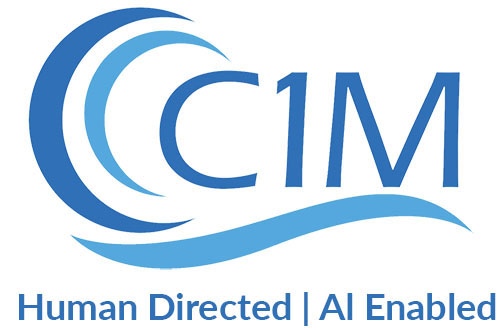
Some time ago, we were no strangers to conferences, trade shows, seminars, and exhibitions. However, since the global pandemic – that was brought with many closures and shutdowns – we are now more familiar with virtual business events, which are the digital adaptation of these past in-person events.
The internet has been a strategic resource for many businesses to pivot and adapt to these current circumstances. In this post, we discover how you can use virtual events in your digital marketing strategy and how they can help your business grow. First, let’s take a look at what types of virtual events there are.
Types of Virtual Events
• Virtual conferences: Online conferences and summits tend to have several sessions that the attendees can choose and watch throughout the day by purchasing a ticket.
• Webinars: Hosting webinars gives brands the opportunity to showcase their expertise in a certain field. By collecting emails through sign-ups, even after the webinar, the marketing and sales team can nurture these leads. According to the Content Marketing Institute, 58% of marketers use webinars to promote their products and services.
• Online workshops: Who hasn’t signed up for an online workshop to learn something new or advance a skill during the pandemic? These are an excellent resource and popular with students, hobbyists, and professionals.
• Product launches: Online product launches allow brands to broaden their reach – showcasing your new product to a worldwide audience. It also allows you to collect data that your sales and marketing team can benefit from in the future.
• Virtual Tours and Appointments: Virtual housing tours have become very popular in the real estate industry over the last couple of years. It doesn’t stop there, you can see virtual tours for universities, offices, doctors’ clinics and much more.
• On-demand content: Share valuable online content with unlimited access, available to purchase.
The main benefits of virtual events are the ability to reach a much wider, sometimes global, audience, and keep track of your performance to improve on for future events. As the virtual event space grows, you will need an online event marketing strategy that stands out with the aim to drive conversions, gain interest, and boosts attendance for your next online event. Next time you are planning your virtual event, try these strategies to create your most successful event to date.
Virtual Event Marketing Strategies
1. Promotion
Virtual events usually require up to 1 to 3 months of planning. With no physical location to search for, you can use this time to focus on promoting your virtual event. Here is how you can promote your event:
Before:
• Identify your audience
• Create an eye-catching event registration page
• Send direct mail campaigns
• Create social media posts
• Launch an email marketing campaign, including reminders
During:
• Send a reminder email on the day and an hour before
• Create live social media posts (Facebook, Twitter, LinkedIn)
• Share downloadable content, such as PDFs or infographics
• Use live chat or chatbots to answer event questions and interact with audience
Post-Event:
• Send follow up thank you emails
• Send “sorry we missed you” emails for those who didn’t attend with a link to recording
• Share post-event surveys via email or social media
• Launch retargeting campaigns
• Post highlights on websites and social media
• Send invitations to your next event
• Have sales contact your leads and begin nurturing them
2. Create An Event Page That Converts
The event page is where everyone will go to learn about your virtual event. It must be enticing and informative, and eye-catching. What will make users sign up? Make sure you illustrate that they have a problem, your product can fix it, and your virtual event will explain how.
Your event page must contain a variety of interactive content, such as professional photos or videos from a past event (physical or virtual), engaging clips from keynote speakers, testimonials from past guests, behind the scene footage, or information about the speakers. All of this can be embedded on to this key landing page, so that users don’t need to click out to find it elsewhere.
These key details must be added:
• Time and date(s) of the event
• An agenda
• Speaker bios
• Sponsor information
• Sign-up links
• Secure payment options
• Shareable buttons to post to social media
Overall, the most important feature of the events page is the “Register Now” button. Make it clearly visible, and you can even consider adding multiple buttons, one at the top and bottom of the page.
3. Email Marketing
Email marketing is one of the greatest tools for marketing your virtual event. Users can’t register for the event without inputting their email address – so use this information wisely. It’s advised to send at least three reminder emails before your event. It could even go up to four to allow you to send one or two on the day of the event.
Here are some examples of when you can send pre-event reminder emails:
1. A week before the event
2. A day before the event
3. The day of the event
4. At the start of the event
After your online event, email marketing will be the most effective resource for lead nurturing. Keep your attendees engaged and entering your sales funnel. The longer you keep your leads engaged with your company and your content, the more likely you are to close the sale and maintain a loyal customer.
4. Leverage Social Media Channels
Your brand should already know which social media channels work best for your customers. Leverage these specific channels to reach your virtual event target audience.
Take the time to announce your virtual event in the running up to the day and post it on all of your company’s social media accounts. You can even ask your employees to share it to their profiles to further increase reach.
Create an event hashtag and get your audience to tag or share with you their photos or stories before and during the event to interact with them.
If your event is sponsored by a partner, ask them to help spread the word on their social media channels. Be sure to share any relevant material such as graphics, announcements, and social media hashtag with them.
Events and conferences have fully adapted to the digital era we now live in and many businesses have used this unique opportunity to leverage the features available online to boost their digital marketing efforts.
We Promise Success
Are you looking for an agency that gets you real, measurable results with interactive virtual events? We can help you with planning and promoting online events and much more. Schedule a free business review to find out how we help businesses grow. You can use these insights for inspiration and let us do the marketing for you.


